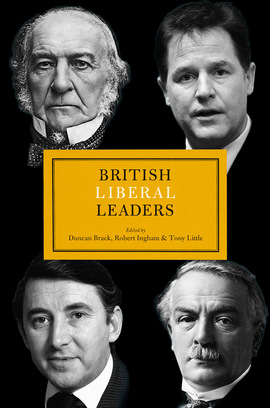Political leadership matters, as we can see now across the world.
Commentators call for clearer and more effective political leadership to deal with European crises, such as migration across the Mediterranean and conflict between Ukraine and Russia. The rival candidates to succeed Barrack Obama go up and down in the opinion polls, as they battle to set out a future for Americans. The Chinese leadership has to tackle major economic changes.
And, of course, in Britain, the 2015 general election opened up party leadership battles, after both Ed Miliband and Nick Clegg failed to deliver electoral success.
Even among the Conservatives, speculation continues to grow about the rival leadership qualities of George Osborne, Boris Johnson and Theresa May, when David Cameron decides to stand down.
The who’s in, who’s out, who’s up and who’s down of politics aren’t just games. The  answers can change the lives of millions.
answers can change the lives of millions.
But despite its importance, it’s difficult to know what makes good political leadership and which individuals are likely to have what it takes.
Our political leaders are under greater pressure than ever before as their decisions and actions are often scrutinised or challenged instantly by a 24/7 media.
The decisions themselves, whether about overall stance and orientation, strategy or policy, are increasingly complex – with long-term implications. Personal behaviour can easily give rise to public controversy.
And our global interdependence, notably in relation to the economy, means that the actions of British political leaders are increasingly constrained in their freedom to act.
The overall stance, strategies, decisions and actions – or lack thereof – of our political leaders determine how our society and economy deal with the problems they face in a world that is changing increasingly rapidly.
leaders determine how our society and economy deal with the problems they face in a world that is changing increasingly rapidly.
Of course, leadership is not only about the leaders of political parties and governments; it is also about a wide range of dispersed leadership, both in national and local politics and throughout the country, in business, public services and our communities.
However, the role of national political leadership is central – never more so.
The Biteback British Leaders series is designed to try to offer some answers and ways of looking at the issue. We have co-edited the Labour and Conservative books, which are published in parallel with that of the Liberals.
The purpose of these books is to assess the political leadership of the main parties over the period from their foundation until today.
We have done that through the lens of the ‘statecraft’ analytical framework, and by statistical comparison of the leaders’ general election performances. Biographers of all the political leaders from 1832 onwards then brilliantly illuminate these overall assessments.
Over that time, the challenges and objectives of political leadership have changed dramatically.
Though the appearance and practices of the Houses of Parliament and the panoply of politics all seem untouched over the decades, the whole context within which politics is conducted has been utterly transformed. The franchise has been enormously widened, the values of our society are completely different, there have been revolutionary changes in the media, and the geo-political order and the world have been globalised. Consequently, leaders have needed to rethink the techniques, skills and strategies necessary to deliver successful political leadership.
The ways in which these goals have been pursued, as well as the techniques used, have often varied dramatically from leader to leader. At every change, each political party has had to choose a new leader who combines his or her own individual personal leadership attributes with the general political direction he or she would be likely to follow.
After their election, the chosen leaders, and their parties, have faced profound choices as to the way in which they respond to particular events, the best objective to target, the best strategic course to follow and the most effective organisational techniques to use. They have very often been challenged in their choices and their conduct, from both within and without the party they led. They all had to deal with alternative approaches, and sometimes alternative people, throughout the course of their leadership.
These tests, all in their different circumstances, are vividly described for each leader in the chapters of these books.
The quality of political leadership is insufficiently considered. What these books demonstrate is that the overall leadership quality of each leader does matter. Things could have been done differently – perhaps better, perhaps worse – and the outcomes would have been different, though in what precise way maybe goes too far into the counter-factual.
Some commentators tend to suggest that the quality of a leader, or potential leader, can be reduced to just physical appearance, particular communication skills or personal history. Others may think it simply to be a matter of ideology, political direction or even a particular policy seen as symbolic.
But these books seek to encourage the view that the quality of political leadership is not only important in its own right – more important than people sometimes allow – but that this quality needs to be judged widely and across a number of different attributes.
We seek to offer a means of considering the quality of political leaders and to urge that every political party gives the highest possible consideration of the overall quality of political leadership when choosing its leaders.
Charles Clarke and Toby S. James
